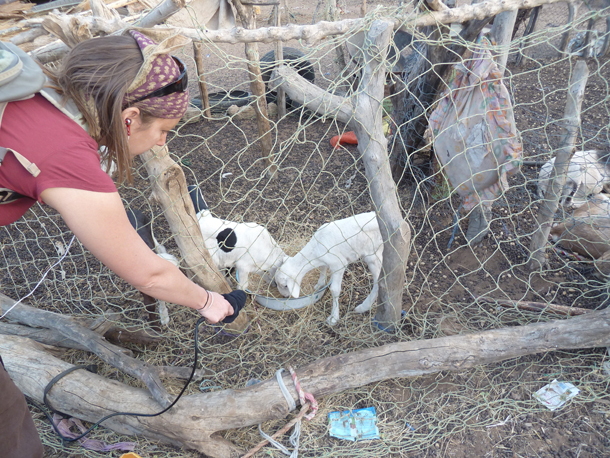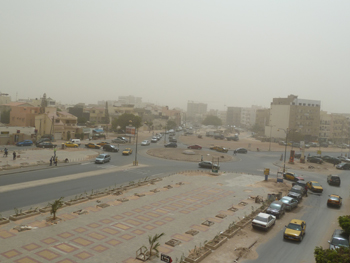
About an hour before dusk, I went for a walk through the Great Green Wall village of Widou in the north of Senegal, hoping to record sounds of goats. When you're making a radio story this is a perfectly normal thing to do. But a local woman and her daughter looked perplexed as they watched me put a microphone in front of their goats. Nonetheless, they motioned for me to pass through the gate and into their sandy yard.
Neither my translator, Mark, nor I speak their language, Peuhl, and they don't speak English or French but they still set down plastic chairs for us while a male relative began to make tea. Tea here is a ritual that can take several hours. Coals from the cooking fire are placed in a small metal bowl on a stand. A round blue teapot goes on top to steep. When the tea preparer thinks it's ready, he adds at least a cup of sugar and a handful of mint. He pours it back and forth from the pot to cups until the sugar is mixed and the top of the tea is frothy. Then tiny tea cups are passed around on a small silver tray. It's hot, sweet and bitter at the same time—everyone has three cups of tea before tea time is over.
A French-speaking guest named Albert joined us just as the tea was ready. He worked with a German reforestation project in the 1980s. For the current project the government wants to plant 12,000 acres with trees, all within the rainy season. But the rainy season is getting shorter and more unpredictable. Albert thinks the government's goal is too ambitious; trees planted when it's too dry will die.
After tea, out host invited us to wash our hands and then presented us with a bowl of beef with onions and potatoes in a thick broth. I have not eaten beef in 19 years but there was no way I could refuse. For the Peuhl, eating beef is quite rare. They keep large herds of cattle but rarely eat them. Animals are mostly meant for market and sold for income. So along with Mark and Albert, I ate from the communal bowl with my right hand and complimented the chef.



